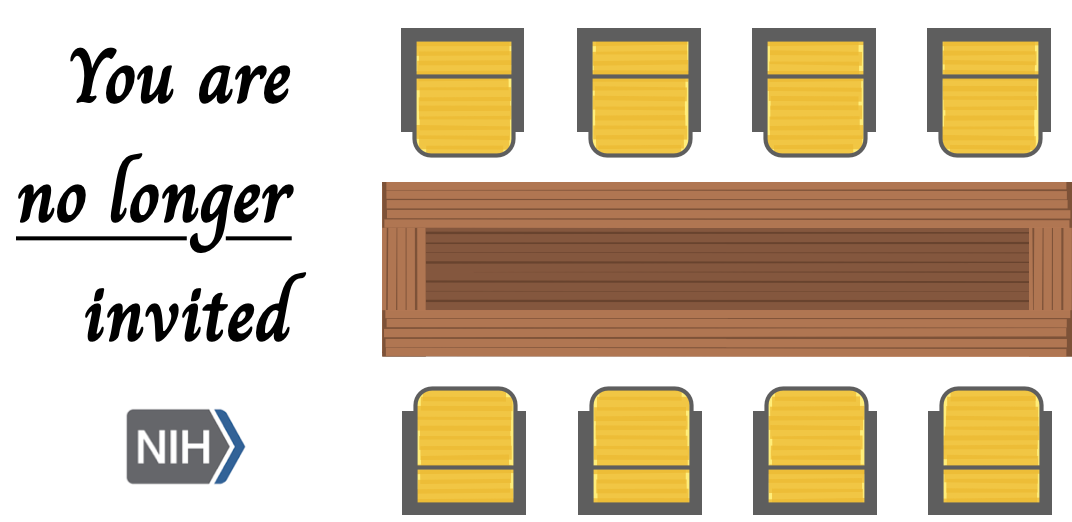Stacking the Board: The Potential for Cascading Failures in NIH Governance
Rescinding invitations to expert advisory council members at NIH risks ‘ACIPification’ and further politicization of biomedical research.
On Monday July 14, Nature’s Max Kozlov reported that NIH intends to rescind invitations for “dozens of scientists who were about to take positions on advisory councils”. The decision to rescind invitations to Institute Advisory Council (IAC) candidates follows news that NIH has already removed the entire membership of its top advisory board and is in the process of replacing this board with new members. In the corporate world, Boards of Directors have an essential role in advancing a company’s mission and in providing oversight and guidance. Failure to govern through lack of readiness, cronyism, or an unwillingness to question management decisions can come with serious risks to organizations (remember Enron?).
Ongoing changes should raise alarms: the NIH is now facing a governance risk.

IAC members are leaders in their fields. Service on councils is a way to give back to the doing and building of science. In practice, members have multiple roles, including shaping the research agenda of NIH institutes and performing the “second-level” review of grants. This second-level review is essential in nearly all cases for final approval of NIH funding. In practice, rescinding invitations means greater administrative burden on each remaining council member. But rescinding invitations also raises the possibility of a more pernicious consequence: invitations to prospective members may be issued based primarily on alignment with administration priorities. In other words, the NIH’s core extramural grant process that fuels biomedical research nationwide is in danger of ACIPification.
ACIPification: removing experts from advisory panels and replacing them with members whose qualifications are based primarily on alignment with administration priorities (ACIP = CDC’s Advisory Committee on Immunization Practices).
As a reminder: in early June, HHS Sec Kennedy Jr removed all 17 ACIP members, replacing them with 8 new members that included anti-vaccination advocates and others with little to no documented expertise in the topic area (one candidate subsequently withdrew, leaving a committee of 7 members in total). This decision comes even as the US experiences the largest measles outbreak in more than 25 years – caused by a failure to vaccinate and exacerbated by mixed messaging by HHS.
ACIP provides advice based on expert review and decision-making. There are substantial health risks associated with removing a panel of vaccine experts and replacing them with members whose views align with the administration and who have not disclosed potential conflicts of interest – despite claims by HHS that they would do so. Given the anti-vaccination stances of a number of new ACIP members, established medical groups, including the American Academy of Pediatrics, have stated their intention to continue to issue evidence-based recommendations for pediatric vaccine schedules. Moving forward, perhaps recommendations of the newly constituted ACIP will be ignored and pediatricians will turn to other vetted sources to guide their recommendations. But it is even more likely that conflicting messages will confuse parents and drive down vaccination rates that can accelerate spread of preventable illnesses – including measles and HPV.
This real world consequence of the changeover in ACIP illustrates why the selection of advisors is critical and why the latest NIH decisions will reverberate.
NIH Institute Advisory Councils are tasked with the second-level review of grant funding recommendations made by the “first-line” review. This first-line review is conducted by panels of standing and ad hoc scientific members selected – again – based on their experience and expertise in the field. First-line review panel members have complementary skill sets to help ensure that the panel as a whole can critically review grant applications. The competition is intense. Often, only 1 in 10 proposals are recommended for funding. The IAC then receives and reviews funding recommendations (and typically accepts them) before the proposal can turn into an actual award. Real questions should be asked to explore and evaluate alternative modalities of evaluation systems. But the removal of experts from IACs opens the door to an entirely different selection process.
Imagine a scenario in which a scientific review group recommends a particular set of highly innovative grants for funding. But, then the IAC conducts a second level review focusing instead on alignment with administration priorities. Perhaps those priorities include vetting of “social-media presence” – as Koslov reported in Nature, such vetting might include whether prospective IAC candidates “have expressed negative views about the Trump administration.” If this is the case, then the second-level review will veer towards decisions made on the basis of political ideology.
ACIPification of NIH’s grant review process could mean that innovative projects that could improve our health and well-being will be declined because they do not align with perceived administration priorities. It could also mean that grant proposals that have not been recommended for funding will be approved because they do align with perceived administration priorities. Without effective and independent governance, the ACIPification of NIH would undermine the review and advisory process. It would also come with a fundamental risk: potentially replacing science with pseudoscience.
News of advisory council reconfiguration may seem like arcana in comparison to the White House FY 2026 budget proposal that included a >40% cut to NIH funding. But if IAC members are focused on alignment with administration priorities rather than evaluating scientific evidence, the choice to reshape NIH advisory boards risks disrupting biomedical research and short-circuiting America’s innovation economy with impacts that will reverberate for years to come.



